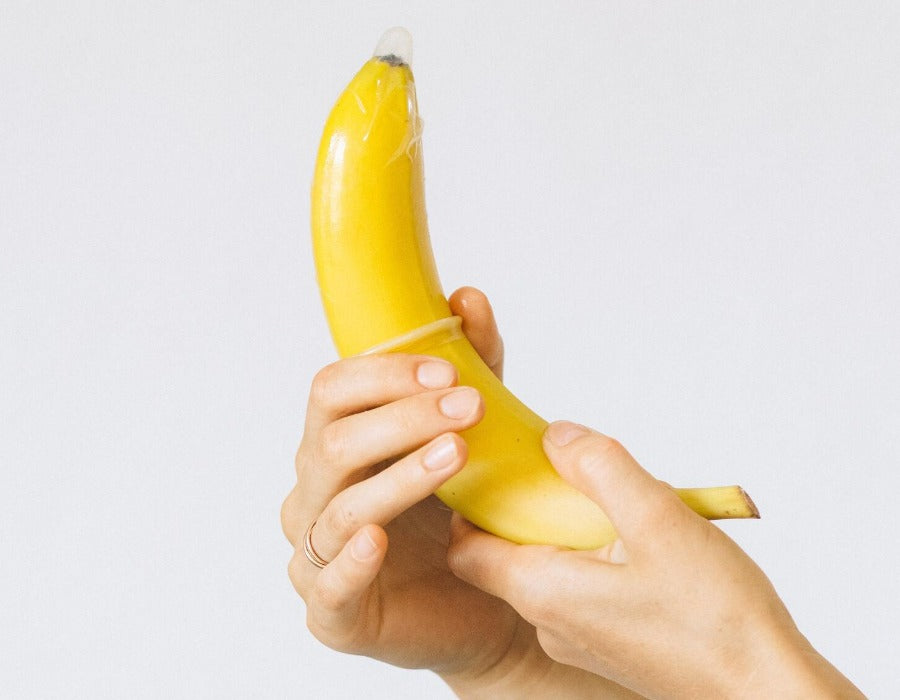Could our fears around sex robots be stopping us from reaping the benefits for human development?
When we talk about sex robots one of the arguments that frequently pops up in their favour is the idea that they could be used for therapeutic, as well as pleasurable purposes.
For instance, some have put forward the idea that controlled interactions with sex robots could help people overcome sexual trauma.
More controversially, some have suggested that childlike sex robots could be used as tools in psychosexual therapy to help prevent paedophilia. Others have purported that the presence of sex robots could reduce instances of rape.
But last week in an editorial for BMJ Sexual & Reproductive Health, Dr. Chantal Cox-George of St. George’s University Hospitals NHS Foundation Trust in London, UK and colleague Susan Bewley of King’s College London argued that there was little research to support these assertions.
When this story was picked up in the media – as pretty much all ‘panic about sex robots!’ articles are – headlines were quick to point out that any therapeutic benefits of sex robots were ‘greatly overstated.’
So, should we ignore claims about the potential benefits of sex robots? Or is there something more going on here?
The first thing to note is that Bewley and Cox-George are right on the key point: there isn’t yet sufficient evidence to support claims that sex robots could have therapeutic benefits of the type they describe.
It’s a suggestion that’s been made by some sex robot experts, and more notably by a man who manufactures ‘child’ sex dolls in the belief that they will help prevent paedophiles from reoffending.
Understandably, people are not keen to take the word of someone who commercialises child sex dolls as a valid source for the claim. As yet, there is little in the way of conclusive research from experts on the topic.
However, as many have pointed out, this is potentially more an issue with the fact that this research is hard to carry out and get funding for. Prof Oliver Bendel, an expert in machine ethics from the University of Applied Sciences Northwestern Switzerland, explained that:
“Most universities in Europe don’t want anything to do with this topic. Most scientists find the subject repulsive.”
So alongside the difficulties in recruiting participants for studies into paedophilia treatment, there’s also a huge roadblock in the form of our reluctance to fund this kind of work.
Sex robots can teach us a lot about human behaviour, and there is still a possibility that these robots could be useful in harm reduction.
However, it’s unlikely that we’ll see any new research into this topic in the near future, because we’re still very squeamish about the implications of this technology.
But what of other kinds of intimacy?
Sex vs Hugs & Other Intimacy
As well as potentially teaching us about new ways to fulfil human desire, sex robots are also really useful to highlight some of the ways in which humans think about sex and intimacy more broadly.
You can tell a lot about our attitudes by the way we project onto humanoid devices – for example, the fact that we give not just sex robots but AI assistants gendered names and refer to them as ‘he’ or ‘she.’
Despite the fact that a robot has no gender, humans still seem keen to want to shoehorn our silicone companions onto one side of a gender binary.
Read our article on Why Are So Many Robotic Assistants Female? for more on the topic of gender: because in this case we want to talk about intimacy.
Around the same time as some newspapers were splashing the story that there has been little research done into the potential effect of using sex robots for therapeutic purposes, another story slipped under the radar:
Researchers from the Max Planck Institute for Intelligent Systems were exploring how to teach a robot to give humans a really lovely hug.
Awwww, right? Lead researcher Alexis Block explained that:
“Robot hugs are important because people love to give and receive hugs. Virginia Satir, a well-known family therapist, was famous for saying, “We need four hugs a day for survival. We need eight hugs a day for maintenance. We need 12 hugs a day for growth.”
Sometimes, we are put in new or uncomfortable situations where we might not be near our loved ones, but that doesn’t mean we don’t need the support and calming effects that a hug provides.
Research on robot hugs is important so we can one day use technology to provide the emotional support and health benefits of hugs to many people, wherever or whenever they need it.”
Hugging is a form of intimacy that it seems people can get behind: we haven’t seen the same kind of outcry about a hugging robot as we have about sex robots, because sexual intimacy seems to have a unique quality that makes it more significant to humans than other forms of physical intimacy, like hugging.
But is sexual intimacy really so different from other forms of physical contact?
Alongside these ‘hug’ robots, there are other research programmes which look into the impact of robot interaction in caring roles, such as supporting people with dementia, or exploring the roles that robots can play in palliative care or to reduce loneliness in ageing populations.
While it’s definitely right to say that there’s not enough research to draw conclusions as to the benefits or drawbacks of sex robots being used therapeutically, this just means we need more research.
With more funding to explore the impact of sex robots on human lives, perhaps we can find the actual answers to these questions, rather than letting ourselves be led by assumptions and gut feelings on which kinds of intimacy are acceptable to explore, and which are too taboo to touch.















































